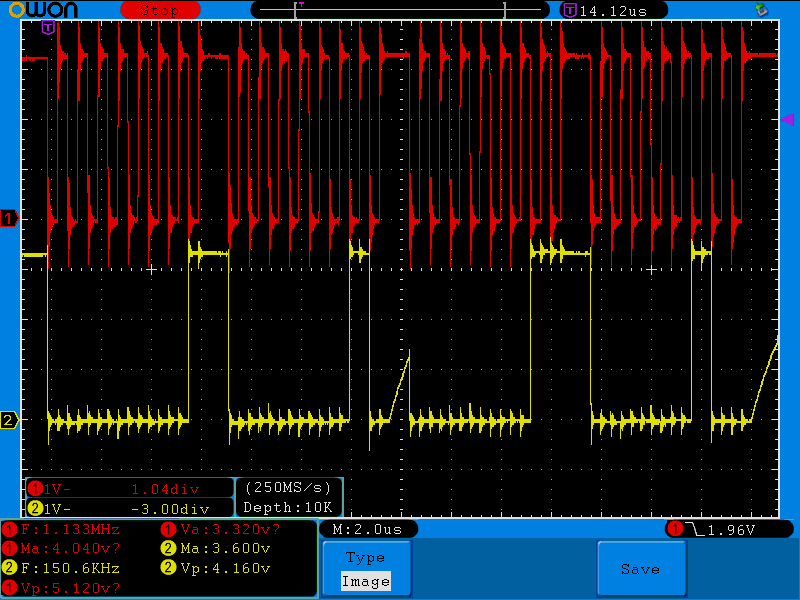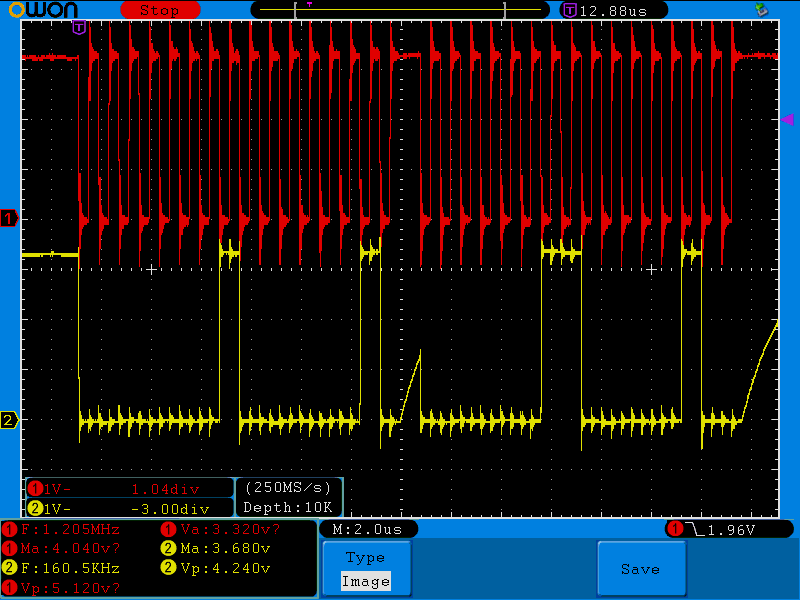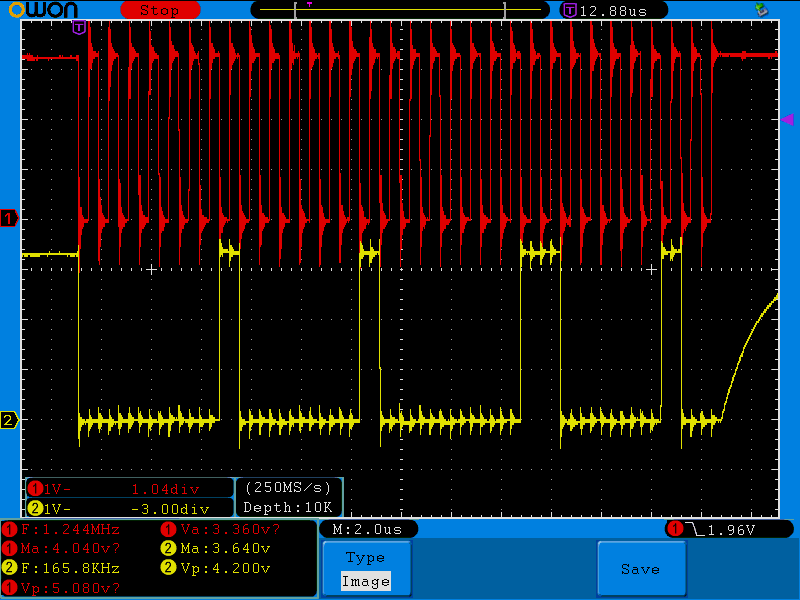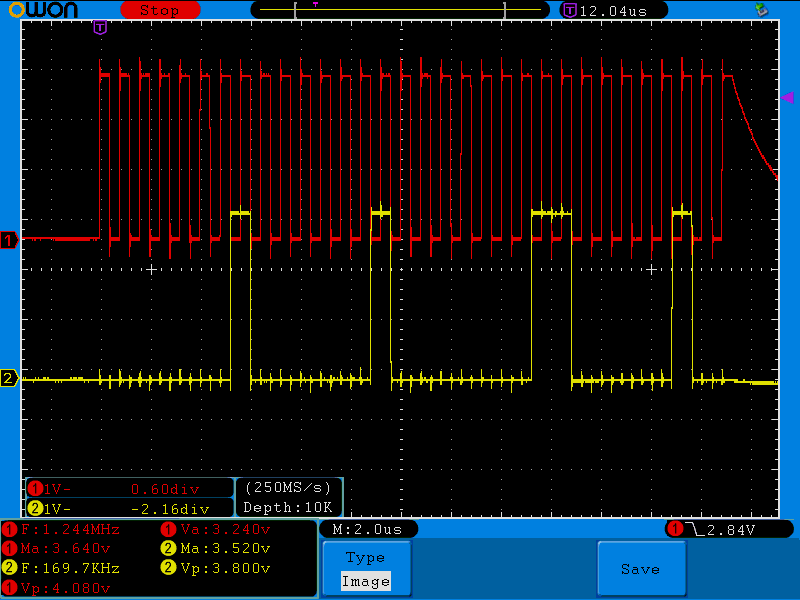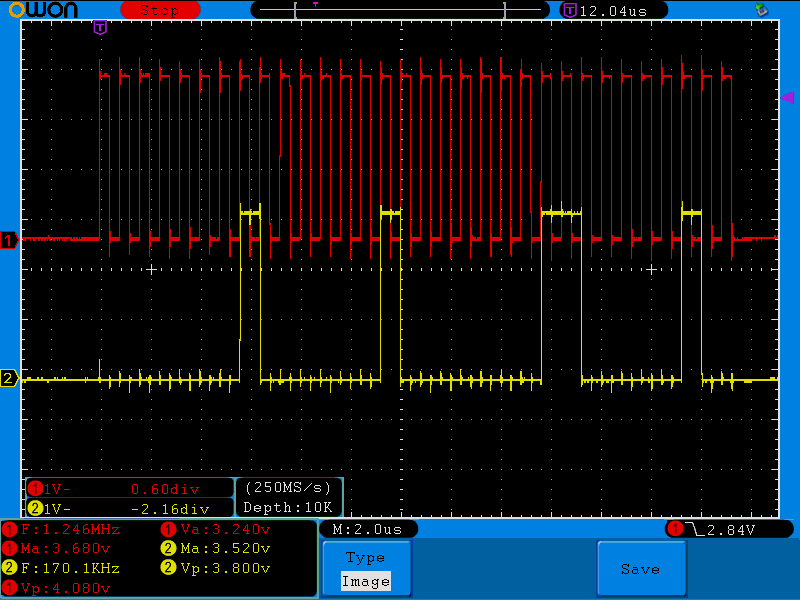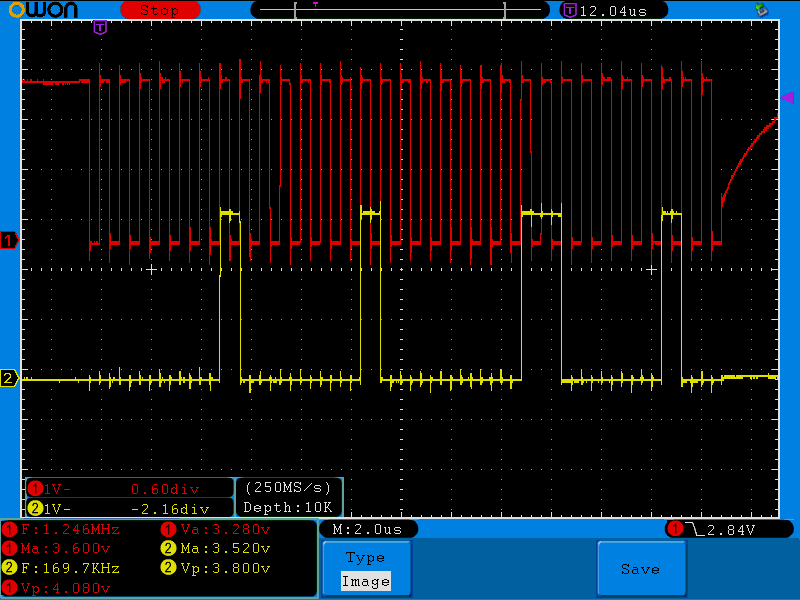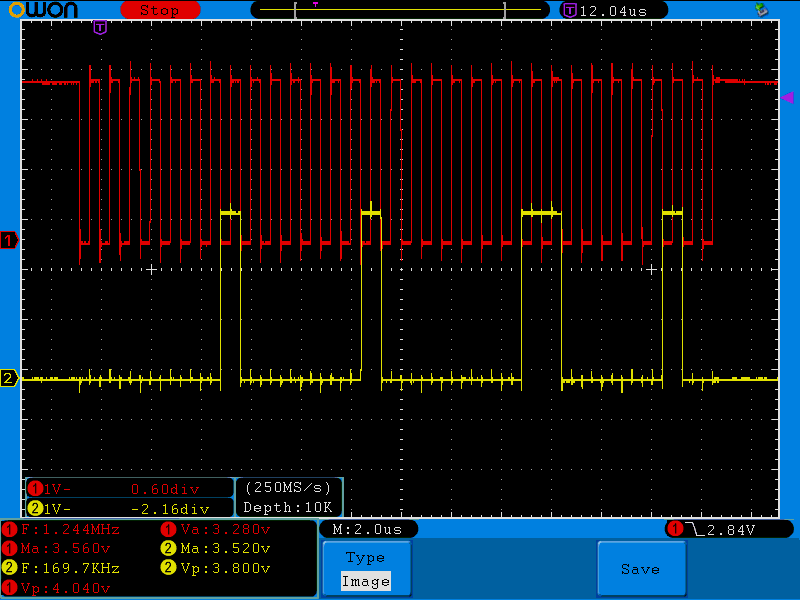Table of Contents
SPI
This page introduces how you can interface your SPI devices to ODROID-C1/C1+/C0.
H/W connection
SPI (/dev/spidev0.0)
| Pin Number | Net Name | Export Number |
|---|---|---|
| C0/C1/C1+ | ||
| 19 | SPI-MOSI(GPIOX.10) | 107 |
| 21 | SPI-MISO(GPIOX.9) | 106 |
| 23 | SPI-SCLK(GPIOX.8) | 105 |
| 24 | SPI-CEN0(GPIOX.20) | 117 |
Loading SPI driver
Dedicated pins for SPI are configured for GPIO, these pins can be configured as SPI bus while change the pin configuration. In order to change the configuration, you must load the driver.
$ sudo modprobe spicc
SPIDEV Test
spidev 8 bits per word, clock speed = 1Mhz
$ sudo ./spidev_test -D /dev/spidev0.0 -s 1000000 -b 8
spidev 16 bits per word, clock speed = 1Mhz
$ sudo ./spidev_test -D /dev/spidev0.0 -s 1000000 -b 16
spidev 32 bits per word, clock speed = 1Mhz
$ sudo ./spidev_test -D /dev/spidev0.0 -s 1000000 -b 32
SPI-mode change test
Update
SPI mode works correctly only with kernel version 3.10.96-151 or higher
spidev 32 bits per word, spi mode = 0
$ sudo ./spidev_test -D /dev/spidev0.0 -s 1000000 -b 32
spidev 32 bits per word, spi mode = 1
$ sudo ./spidev_test -D /dev/spidev0.0 -s 1000000 -b 32 -H
spidev 32 bits per word, spi mode = 2
$ sudo ./spidev_test -D /dev/spidev0.0 -s 1000000 -b 32 -O
spidev 32 bits per word, spi mode = 3
$ sudo ./spidev_test -D /dev/spidev0.0 -s 1000000 -b 32 -H -O
spidev_test source code
spidev test code compile.
$ gcc -o spidev_test spidev_test.c
- spidev_test.c
/* * SPI testing utility (using spidev driver) * * Copyright (c) 2007 MontaVista Software, Inc. * Copyright (c) 2007 Anton Vorontsov <avorontsov@ru.mvista.com> * * This program is free software; you can redistribute it and/or modify * it under the terms of the GNU General Public License as published by * the Free Software Foundation; either version 2 of the License. * * Cross-compile with cross-gcc -I/path/to/cross-kernel/include */ #include <stdint.h> #include <unistd.h> #include <stdio.h> #include <stdlib.h> #include <getopt.h> #include <fcntl.h> #include <sys/ioctl.h> #include <linux/types.h> #include <linux/spi/spidev.h> #define ARRAY_SIZE(a) (sizeof(a) / sizeof((a)[0])) static void pabort(const char *s) { perror(s); abort(); } static const char *device = "/dev/spidev1.1"; static uint8_t mode; static uint8_t bits = 8; static uint32_t speed = 500000; static uint16_t delay; static void transfer(int fd) { int ret; uint8_t tx[] = { 0x01, 0x02, 0x03, 0x04, }; uint8_t rx[ARRAY_SIZE(tx)] = {0, }; struct spi_ioc_transfer tr = { .tx_buf = (unsigned long)tx, .rx_buf = (unsigned long)rx, .len = ARRAY_SIZE(tx), .delay_usecs = delay, .speed_hz = speed, .bits_per_word = bits, }; ret = ioctl(fd, SPI_IOC_MESSAGE(1), &tr); if (ret < 1) pabort("can't send spi message"); for (ret = 0; ret < ARRAY_SIZE(tx); ret++) { if (!(ret % 6)) puts(""); printf("%.2X ", rx[ret]); } puts(""); } static void print_usage(const char *prog) { printf("Usage: %s [-DsbdlHOLC3]\n", prog); puts(" -D --device device to use (default /dev/spidev1.1)\n" " -s --speed max speed (Hz)\n" " -d --delay delay (usec)\n" " -b --bpw bits per word \n" " -l --loop loopback\n" " -H --cpha clock phase\n" " -O --cpol clock polarity\n" " -L --lsb least significant bit first\n" " -C --cs-high chip select active high\n" " -3 --3wire SI/SO signals shared\n"); exit(1); } static void parse_opts(int argc, char *argv[]) { while (1) { static const struct option lopts[] = { { "device", 1, 0, 'D' }, { "speed", 1, 0, 's' }, { "delay", 1, 0, 'd' }, { "bpw", 1, 0, 'b' }, { "loop", 0, 0, 'l' }, { "cpha", 0, 0, 'H' }, { "cpol", 0, 0, 'O' }, { "lsb", 0, 0, 'L' }, { "cs-high", 0, 0, 'C' }, { "3wire", 0, 0, '3' }, { "no-cs", 0, 0, 'N' }, { "ready", 0, 0, 'R' }, { NULL, 0, 0, 0 }, }; int c; c = getopt_long(argc, argv, "D:s:d:b:lHOLC3NR", lopts, NULL); if (c == -1) break; switch (c) { case 'D': device = optarg; break; case 's': speed = atoi(optarg); break; case 'd': delay = atoi(optarg); break; case 'b': bits = atoi(optarg); break; case 'l': mode |= SPI_LOOP; break; case 'H': mode |= SPI_CPHA; break; case 'O': mode |= SPI_CPOL; break; case 'L': mode |= SPI_LSB_FIRST; break; case 'C': mode |= SPI_CS_HIGH; break; case '3': mode |= SPI_3WIRE; break; case 'N': mode |= SPI_NO_CS; break; case 'R': mode |= SPI_READY; break; default: print_usage(argv[0]); break; } } } int main(int argc, char *argv[]) { int ret = 0; int fd; parse_opts(argc, argv); fd = open(device, O_RDWR); if (fd < 0) pabort("can't open device"); /* * spi mode */ ret = ioctl(fd, SPI_IOC_WR_MODE, &mode); if (ret == -1) pabort("can't set spi mode"); ret = ioctl(fd, SPI_IOC_RD_MODE, &mode); if (ret == -1) pabort("can't get spi mode"); /* * bits per word */ ret = ioctl(fd, SPI_IOC_WR_BITS_PER_WORD, &bits); if (ret == -1) pabort("can't set bits per word"); ret = ioctl(fd, SPI_IOC_RD_BITS_PER_WORD, &bits); if (ret == -1) pabort("can't get bits per word"); /* * max speed hz */ ret = ioctl(fd, SPI_IOC_WR_MAX_SPEED_HZ, &speed); if (ret == -1) pabort("can't set max speed hz"); ret = ioctl(fd, SPI_IOC_RD_MAX_SPEED_HZ, &speed); if (ret == -1) pabort("can't get max speed hz"); printf("spi mode: %d\n", mode); printf("bits per word: %d\n", bits); printf("max speed: %d Hz (%d KHz)\n", speed, speed/1000); transfer(fd); close(fd); return ret; }
